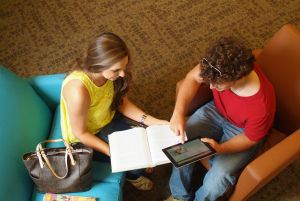Updated on November 12, 2024
A resume is necessary today, not only when applying for a job. College applicants are also required to write a resume among the other documents of their application package. That is why it is recommended for them to learn important tips for creating this college application resume. And here are collected main features that must be included in your college admission CV.
Why Is It required?
This type of writing is an appropriate way to describe your features and skills. In such a way, you can provide the necessary information that will make a certain impression on college administration. In case you have never written resumes at all, you can rely on the professional service of ResumeWritingLab. This online company will provide you with a great customized resume that you can use to apply to different colleges.
The Structure
Like job-seekers have to describe their professional skills, enrollees need to show their abilities to learn and previous learning achievements.
However, the structure of your resume for a college application has special features and will be different from an ordinary job-seeker resume because the final aim is not just having an interview with the recruiter. In general, you can follow this format:
Free resume critique
from certified writers!
- Heading: You need to provide your identifying personal information at the top of your college CV. While this is a good style, this will be also very handy for all colleges and universities. Include all important information, adding your social security number.
- Overview: Make a short description of your strongest features. Include all important achievements and special knowledge. It will be a short biography that must make an admission officer keep reading.
- Education: Here you should write educational information, providing data about your school. Include your GPA and the class rank, if it is known. Don’t forget to mention academic distinction, if you have any.
- Activities: If you took part in any sports, communities, programs, clubs, or other types of activity, you should name them here. Try to limit yourself to 8 points. In case you have more than 8 entries, name the most important and appropriate ones. But for those who can’t name even 4 of them, you should remember any activity you had. Describe it more fully to make an impression.
- Special Projects: This part is for events that happened just once or twice. You might have participated in a science fair, charity project, or another important event. So write about the greatest 3 of them. If you have nothing to describe, simply omit this section.
- Awards: Here you have no limits. You should just list your awards, but explain if the name of your award is not obvious. Although you should not write too many examples of the same category that you have won. Here you can also mention the award at the science fair you talked about earlier.
However, you are not limited to these sections. You can also create your own one for special achievements or skills that you have. That’s why you should think about these features beforehand when applying to an achievement coach. In general, just try to follow this college application resume format, as it is specially created by professional resume writers.
Main Points
To make it easier for you to understand what you should and should not do, here are special points for writing a college application CV:
- If you have a lot of information, don’t limit yourself to just one page. Make a bulleted list that is easy to follow and contains all important information.
- Generally, you don’t need to include your experience before high school. But you still should list any continuing activities.
- Don’t use acronyms; instead, write the full names of entries.

- Use a simple font with no extraordinary design or colors.
- Include your work experience if you have spent time outside the class.
- Include any part-time job that might have prevented you from community activities.
- Make your chronological order reverse.
- Start with the most important point.
- Proofread your writing several times and even give it to an uninterested reader.
With this easy information, you must understand the basic rules of writing resumes for college applications. Now is the best time for you to make your first resume, so you will have no problems with your job application in the future. You can also learn any special tips online to make your college admission resume even more effective.

Written by Dua Khan
Dua is a Certified Professional Resume Writer (CPRW) and Career Coach. Since 2019, she's dedicated her career to creating ATS-optimized job application materials for a diverse clientele, including Grammy-winning artists, and executives at Fortune 500 companies. Her expertise spans executive-level resumes, cover letters, and LinkedIn content, and she holds a successful track record of supporting clients from prestigious organizations such as the CDC, NOAA, NHS, and Johns Hopkins University to achieve their career aspirations.

